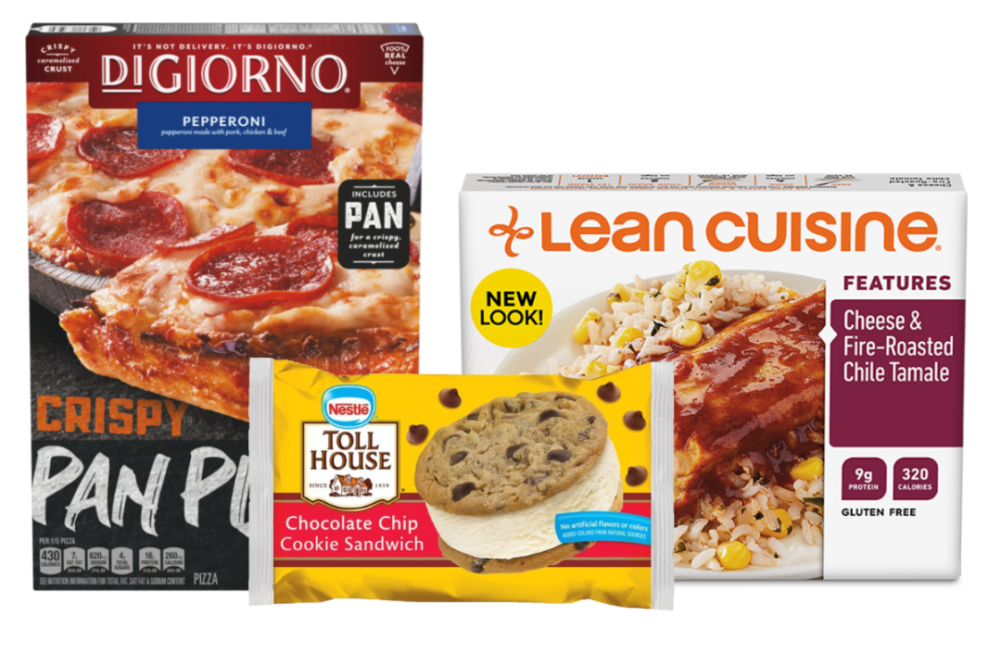VEVEY, SWITZERLAND — In the two-plus years since Steve Presley took over as chief executive officer of Nestle USA it has been a renaissance of growth for the company’s US operations. Credit, he said, goes to the success of Nestle’s hybrid growth model and the strength of big brands.
“Really, for us, when we think about how you grow in this market, no matter how great your innovation is or how strong some of the other things are that we'll come to, you've got to have healthy base business,” Presley said during a Sept. 9 virtual presentation as part of the Barclays Global Consumer Staples Conference. “And reimagining and reinvigorating our big businesses is what we've really focused on. And that's including driving product quality into the product, really focused on consumer-obsessed innovation that's driving big wins in some of our big categories and absolutely just being relentless around this pursuit of what does the consumer need, how do we get it quickly and how do we bring it to our big brands with speed.”
Another factor driving success has been Nestle’s portfolio transformation. Presley said the company has been particularly aggressive in its transformation efforts throughout the United States.
“If you look at our core food and beverage business, we've actually rotated almost half of that portfolio through portfolio transformation,” he said. “And we continue to be aggressive in that space.”
Examples cited by Presley included the Buitoni pasta business, which Nestle sold earlier this year to Brynwood Partners VIII LP, and the divestiture of its US ice cream business last winter to Froneri in a $4 billion transaction.
In mid-June, Nestle announced it was seeking options for its North American Waters business that includes such brands as Poland Spring, Deer Park, Ice Mountain and Arrowhead as well as a direct-to-consumer and office delivery service. The business generated approximately $3.6 billion in 2019, according to the company.
Presley was asked by an analyst during the call whether Nestle is considering any changes to its frozen foods portfolio, particularly in light of recent changes to the unit’s distribution setup.
“The exit on DSD (in frozen foods) was really around going after efficiencies in the business to simplify the business, really get focused on what's important to the consumer, unlock resources in the business that then you can turn around and drive growth with on those businesses,” he explained. “The DSD was a very expensive path to market. It was a difficult, complex project to unravel. But we did it successfully. We did it six months early, unlocked the margin creation from that move and invested that in growth on those businesses. And you see both frozen and our pizza business and our ice cream business have performed quite well through the transition and now after the transition.
“And so — and as we look at frozen food or the idea, would it be next in the portfolio transformation, frozen is actually a structurally attractive category, high cash flows, high ROIC and really strong growth. And … as you think about frozen, it's important that you break it into buckets. There's no such thing as a monolithic frozen category. Stouffer's, which is a very big business for us in the US, has been growing for multiple years now, delivering strong margin accretion and winning share actually on that part of the business. And so you think of it in meals, you think of it in pizza, I think the DSD was a critical move to unlock the growth and the potential of that business. So pizza, I think, is on a very good path.”
Looking at the snacking portion of the frozen foods business, primarily the Hot Pockets business, Presley said growth has been good both pre- and post-pandemic. Nestle instead has been focused on the turnaround in the nutritional meal segment, which includes the company’s Lean Cuisine business. Presley said Nestle has struggled with personalized meals, but remains optimistic it can get things turned around.
“We just reimagined that business, relaunched Life Cuisine, which is underneath Lean Cuisine,” he said. “And that business shows really good early signs that we'll be able to turn that business around as well. So for us, it is a structurally attractive space. It is consumer-focused. Consumers actually have come back to the category in a big way pre-COVID, through COVID and we think post-COVID. It offers a convenience and a taste … and a value that can't be beat in their meal offerings. And so we feel really strong about our frozen portfolio right now. Still work to do, we always have work to do in the space in all of our businesses. But it's an attractive business for us.”
The last piece factoring into Nestle USA’s success is the development of new innovation models. Presley said the company is searching for ways to incubate and develop innovation in a different way through open sourcing.
“(We’re) tapping into the 40,000 consumers that work for us every day and are passionate about this company,” he said. “And that's actually brought a good level of growth for us. And so we've really been focused on that.”


